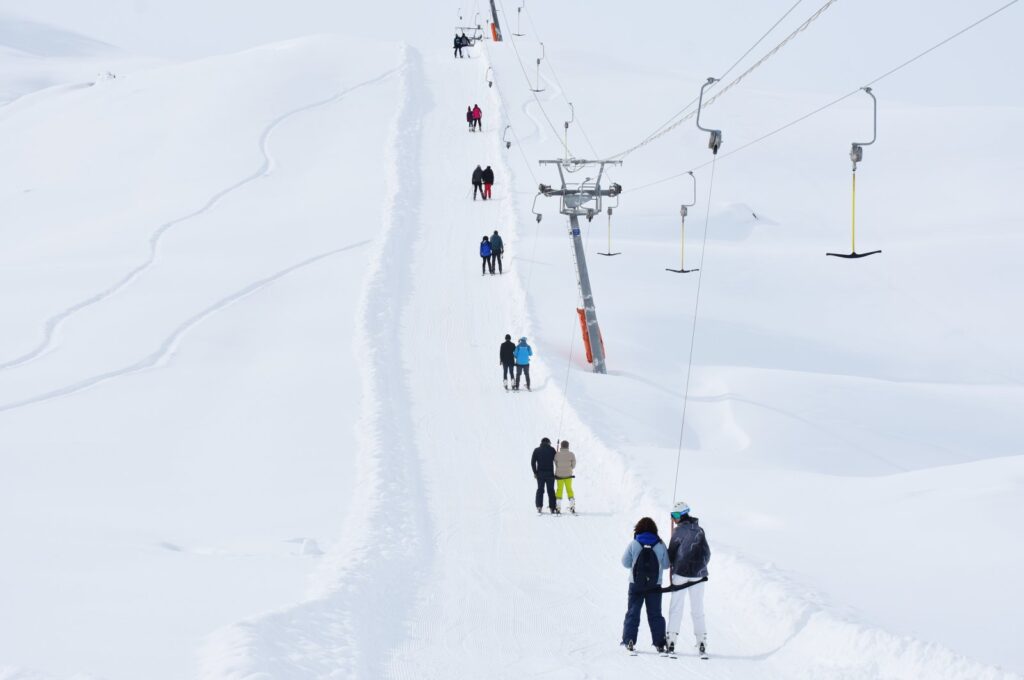Traditional Mesir Ceremonies in Manisa, Turkiye: A Unique Cultural Celebration (June 20–23)
Every June, the city of Manisa in Turkey hosts the Traditional Mesir Ceremonies, a vibrant festival celebrating a historic herbal paste called Mesir Macunu. Originating from the Ottoman era, this unique mixture of over 40 herbs was said to have healing powers and was first made by Hürrem Sultan for her father-in-law.
During the festival, the famous Mesir Paste is thrown from mosque minarets to the crowd below, symbolizing health and good fortune. The event features prayers, folk music, dances, and colorful processions, offering visitors a lively cultural experience.
If you’re in Turkey in June, the Mesir Ceremonies in Manisa provide a fascinating glimpse into Turkey’s rich history and traditions.

–
Tensions Escalate Between Iran and Israel
The Iran-Israel conflict has entered its eleventh day, marked by a fresh missile barrage from Iran that sent millions in Israel to bomb shelters, no reported casualties. Israel has continued striking military targets inside Iran, with reported casualties surpassing 400 and thousands injured.
Despite a summit in Geneva, diplomatic efforts have stalled. The U.N. Security Council meeting ended in heated exchanges but no progress. U.S. President Trump has opened a two-week window for negotiations, delaying a decision on possible U.S. military involvement.
Meanwhile, B2 bombers have been deployed to Guam, signaling heightened readiness. The head of the U.N. nuclear watchdog confirmed limited radiological leaks from Israeli strikes on Iranian nuclear sites, currently not a public threat but raising global concerns.
Iran insists it won’t negotiate under fire, while Israel signals it’s prepared for a prolonged campaign.
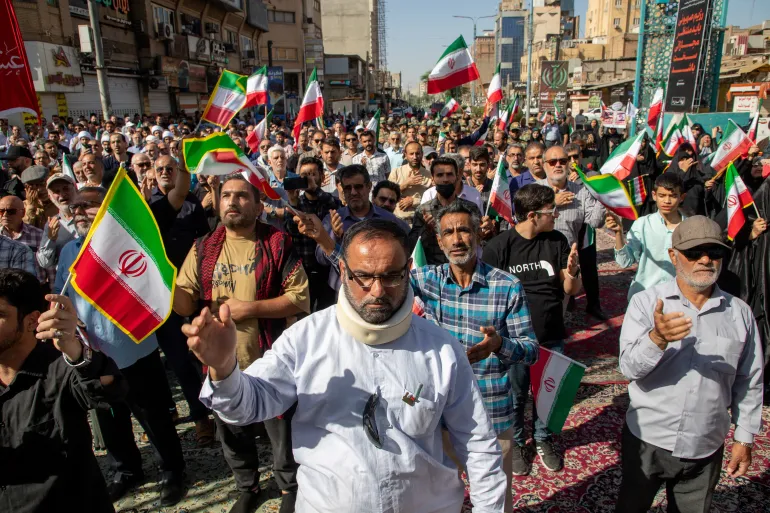
–
Oil Markets on Edge Amid Iran-Israel Conflict
As tensions escalate between Iran and Israel, global oil markets are watching closely, but for now, production remains steady. Iran currently produces about 3.3 million barrels of oil per day, exporting roughly half. That’s a small share of the world’s 100 million daily barrels, but even minor disruptions can jolt markets.
Analysts suggest that if Iranian exports are interrupted, other OPEC nations could step in by tapping spare capacity to help fill the gap. The greater concern lies in the potential for Iran to block the Strait of Hormuz, a critical chokepoint through which around 20% of the world’s oil supply flows.
Though such a move is still considered unlikely, the current geopolitical climate has already turned several “unlikely” scenarios into reality. With that in mind, market volatility may still have plenty of room to rise.
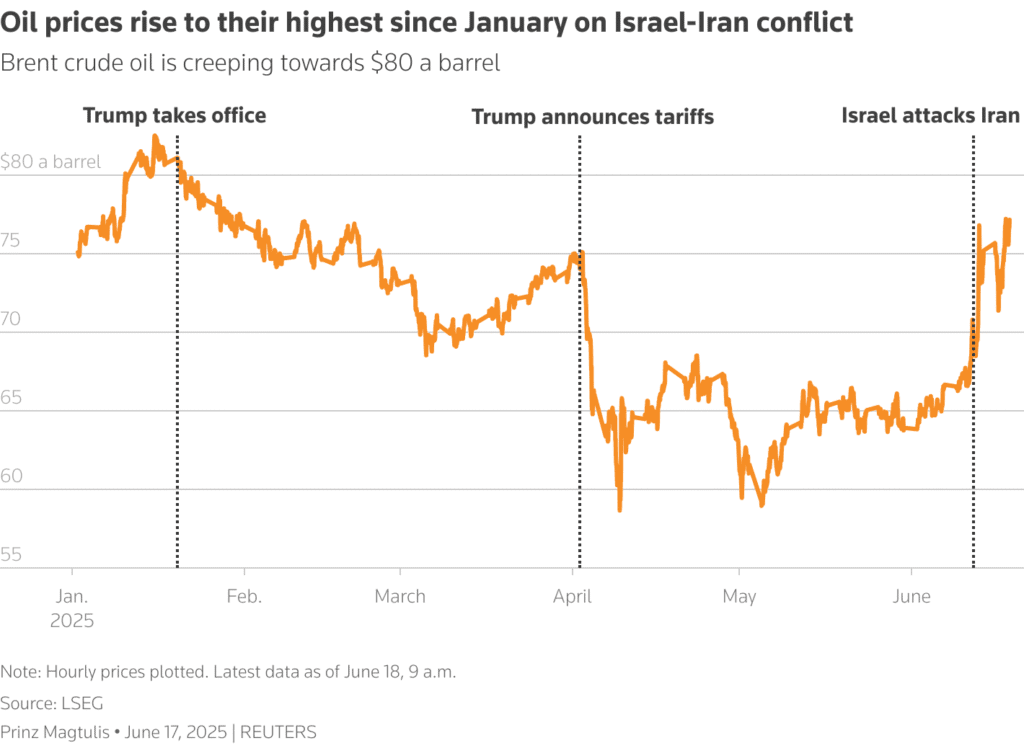
–
U.S. and China Strike Tentative Deal Amid Tariff Uncertainty
The U.S. and China have reached a new agreement, though details remain unclear. President Trump announced that the U.S. will gain full access to Chinese rare earth minerals and magnets, while Chinese students will again be eligible for U.S. study visas.
Tariffs are a major part of the deal: the U.S. will impose rates of up to 55%, while China will charge 10%. It’s uncertain how these will be applied, but analysts suggest the U.S. may retain existing multi-tiered tariffs. High rates could discourage imports and prompt businesses to move production—though uncertainty about tariffs on other countries makes relocation risky.
The deal does not address U.S. restrictions on tech exports to China, a key concern for Beijing. Meanwhile, a court has upheld existing tariffs until an appeal begins on July 31.
Markets responded cautiously: stocks rose briefly but closed slightly down, while bond yields held steady.
–
What’s Up with the U.S. Dollar — and the Turkish Lira?
The U.S. dollar has been slipping lately, surprising many. Normally, higher tariffs boost a currency’s value—but since new tariffs were announced in April, the dollar has been under pressure. Why?
Global investors are nervous. As U.S. trade shrinks and alliances shift, demand for dollars is easing. Many are turning to other currencies like the euro, yen, or Swiss franc. On top of that, slower U.S. growth forecasts, and stronger ones for Europe, are dimming the dollar’s shine.
Meanwhile, the Turkish Lira tells a different kind of story. In 2005, Türkiye launched a fresh start by dropping six zeros from its currency. One Hundred U.S. dollar was worth about 130 Turkish Lira back then. Fast forward to 2025, and One Hundred U.S. dollar now buys over 3955 Turkish Lira.
Why the steep drop? Years of inflation, political uncertainty, and unconventional economic policies have steadily eroded the lira’s value. For many in Türkiye, it’s become a daily challenge, prices rise, but incomes struggle to keep up.
In both cases, the movements of money reflect something deeper: confidence, stability, and how the world sees the future.
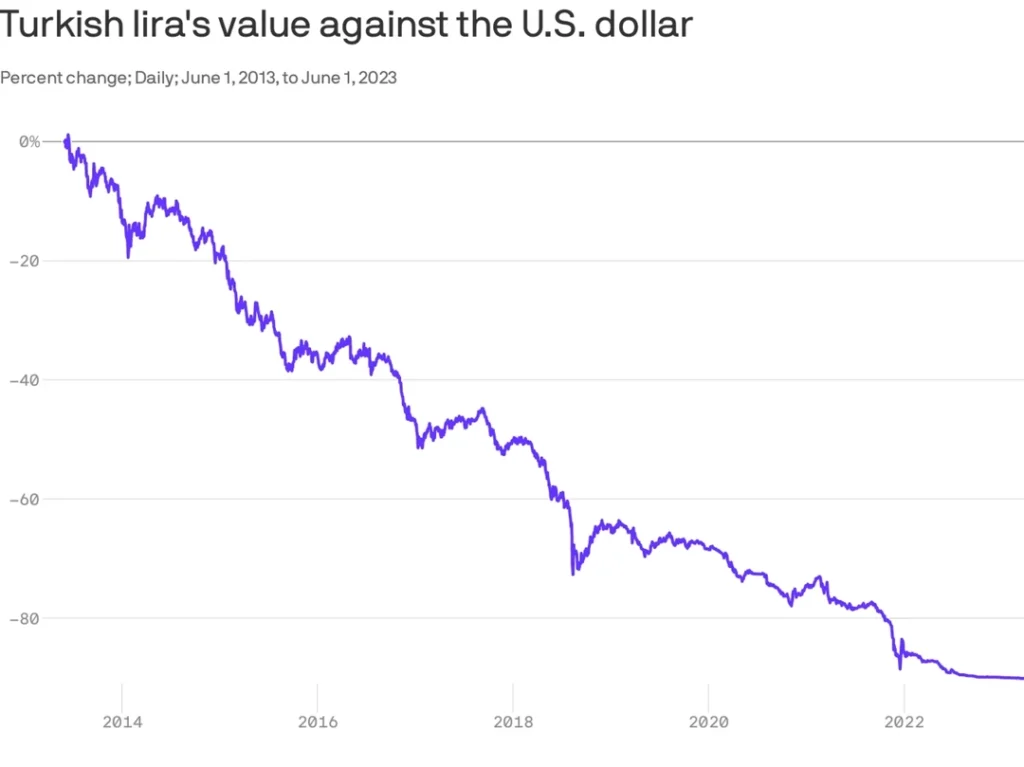
–
400 Person Indian Baraat” Brings Wall Street to a Standstill – and the Internet Loves It
“We shut down Wall Street for a 400-person baraat – who would’ve ever thought?!” – DJ AJ
A spectacular Indian wedding turned Lower Manhattan into a full-on Bollywood set, as a 400-person baraat danced their way through Wall Street, stopping traffic and stealing hearts.
In the now-viral video, guests in dazzling traditional attire move to the beats of DJ AJ, surrounding the bride and groom in a swirl of colors and joy. With the New York Stock Exchange as the surreal backdrop, the moment captured pure desi magic in the middle of NYC’s financial district.
Social media erupted in celebration, with users calling it “the most iconic fusion of finance and festivity ever.”

–
AI Taj Mahal Throwback
An artist used AI to recreate historical scenes of the Taj Mahal under construction, giving a fascinating snapshot of a centuries‑old wonder.
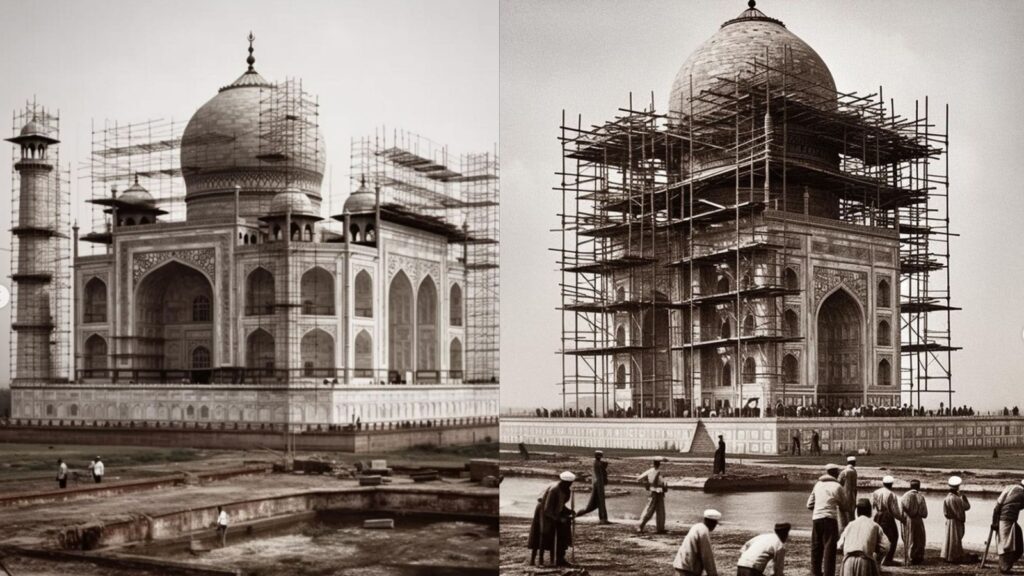
–
Spider‑Man Makes Rotis
A Jaipur street performer dressed in Spider‑Man attire went viral after a rooftop video of him making rotis (flatbreads). Netizens dubbed it “Spider‑Man: No Food at Home.”

–
Surge in Cruise Tourism
Cruise tourism is expected to grow by 20% in ship arrivals and 30% in passenger numbers in 2025, with Kusadasi serving as a vital connection between Greece and Turkey in the Aegean.

–
Hakkari Ski Center Reopens with New Facilities and Fresh Snow
The ski resort in eastern Hakkari’s Merga Bütan Plateau, at 2,800 meters altitude, has been modernized with new investments, including a 120-bed hotel, a four-chair lift, two new slopes, a chalet, and a 200-meter indoor ski course. With 1 meter of fresh snow, it’s ready to welcome local and international tourists from nearby countries like Iran and Iraq.
The center offers skiing on peaks above 3,000 meters and natural trails for trekking and camping. Safety is ensured with 24/7 gendarmerie rescue teams. Officials expect the ski season to last until June and plan to host national alpine skiing competitions in February. Visitors praise the resort’s stunning scenery and facilities, making it a rising winter tourism destination in Türkiye.
